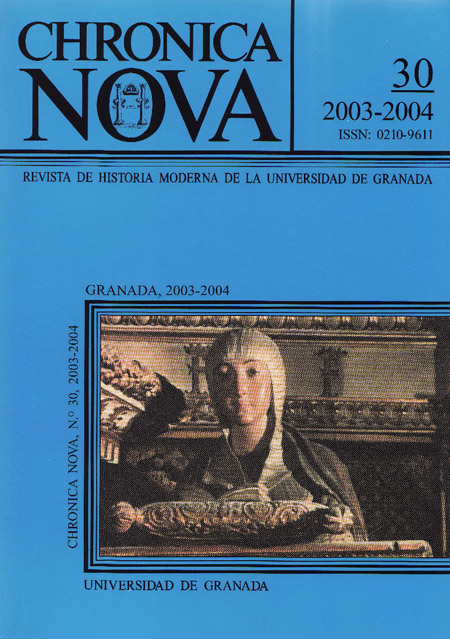Don Gonzalo de Córdoba: el genio militar y el nuevo arte de la guerra al servicio de los Reyes Católicos
DOI:
https://doi.org/10.30827/cn.v0i30.1847Palabras clave:
Ejército, Guerra, Soldados, Italia, Francia, Monarquía Hispánica, . Infantería. Caballería, Táctica y estrategia militar, TercioResumen
En este artículo se analiza el papel desempeñado por Gonzalo Fernández de Córdoba en las dos grandes campañas sostenidas por Francia y los Reyes Católicos por el control de Italia entre 1495 y 1504. Se hace un recorrido histórico por aquellos episodios (toma de los fuertes de Atella y Ostia, defensa de Barletta, batallas de Cerignola y del Garellano) que sirvieron para consolidar su prestigio como general en jefe de los ejércitos hispánicos y cimentar el mito del Gran Capitán. En la última parte se analizan las principales innovaciones introducidas por el noble cordobés en el campo de la milicia, dentro del contexto de la tradición militar hispana: el desarrollo de la guerra de desgaste y la emboscada contra el ejército francés, superior en número y recursos, la introducción del arcabuz como arma portátil ofensiva, así como la reorganización táctica de la infantería, por medio de la creación de unidades más pequeñas y operativas capaces de frenar la carga de la temible caballería francesa, y que constituirían el germen de los futuros tercios.Descargas
Descargas
Publicado
Cómo citar
Número
Sección
Licencia
Nuestra revista se atiene a las recomendaciones para la implementación del Artículo 37 Difusión en Acceso Abierto de la Ley de la Ciencia, la Tecnología y la Innovación:
- Los/as autores/as cuyas contribuciones sean aceptadas para su publicación en esta revista conservarán el derecho no exclusivo de utilizar sus contribuciones con fines académicos, de investigación y educativos, incluyendo el auto-archivo o depósito de los artículos aceptados en repositorios institucionales o temáticos de acceso abierto de cualquier tipo en un plazo máximo de seis meses.
- Preferiblemente se permitirá el uso de la versión publicada de las contribuciones científicas, que estarán accesibles en abierto tan pronto como sea posible.
-
Que en caso de que el trabajo sea aprobado para su publicación, el/la autor/a autoriza de manera ilimitada en el tiempo a la entidad editora para que incluya dicho texto en Chronica Nova y pueda reproducirlo, editarlo, distribuirlo, exhibirlo y comunicarlo en el país y en el extranjero por medios impresos, electrónicos, CD, Internet o cualquier otro medio conocido o por conocer.






 ISSN-e: 2445-1908
ISSN-e: 2445-1908










